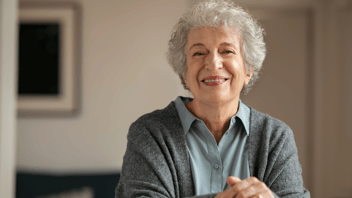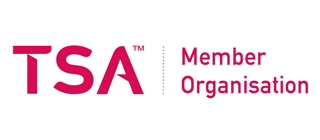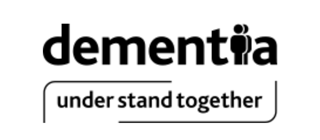.png?width=1200&name=Untitled%20design%20(24).png)
According to Family Carers Ireland, over 500,000 people are caring for a loved one at home. Becoming a carer to a loved one can happen unexpectedly and suddenly. If you are an informal carer or caring for a loved one, know you are not alone. Support is available through charities such as Family Carers Ireland and Care Alliance Ireland
Here are some tips that can help navigate the journey to caring for a loved one with compassion and confidence.
1. Staying on Top of Medical Care
Regular doctor visits are essential for managing your loved one’s health. Attending appointments where possible, not only keeps you informed but helps you advocate on their behalf.
What you can do?
Prepare a list of questions before appointments. For example: Are there new side effects from medication that you should be aware of?
- Discuss these concerns with your loved one ahead of time to ensure they feel involved and heard.
- Keep a folder (digital or physical) to track test results, appointment notes, and prescriptions.
With HaloCare’s Virtual Monitoring Solution vitals such as blood pressure, oxygen levels and weight can all be monitored from the comfort of your loved one's home. This information is shared with the client's clinician to help make data-informed decisions around the client's health and allows for early intervention.
Early intervention means that if something is out of the ordinary i.e. higher blood pressure than usual, it will be detected earlier and can be discussed in further detail and ensure your loved one is still on the best course of treatment for their individual needs.
2. Managing Medication safety:
Older adults, particularly those living with dementia or other memory conditions can be at risk of taking multiple medications, which can easily lead to confusion or accidental misuse.
What you can do:
- Ask a GP or pharmacist about simplifying medication schedules.
- Use pill organisers or automated dispensers to reduce errors.
HaloCare can provide medication reminders, if requested, as part of the HaloCare solution making medication management easier at home.
3. Encouraging Physical Exercise:
Encourage your loved one to stay active. According to the National Library of Medicine, exercise can improve health, strength, sleep and mood and can help lower the risk of falls at home.
What you can do:
- Encourage your loved one to take short daily walks, do light stretches, or follow along with gentle chair-based exercise videos.
- Choose activities that are enjoyable and suited to your loved one’s mobility level.
- Consult a healthcare provider before starting a new routine.
How HaloCare can help:
Using the HaloPad, HaloCare Clients will have access to the HaloCare Exercise Programme which has light exercise, mobility and stretching classes suitable for all capabilities which can be accessed easily.
Walking becomes even more enjoyable with the HaloGo watch. Featuring built-in geolocation technology and an SOS button, it gives clients the freedom to enjoy the outdoors with the reassurance that help is always close at hand.
4. Supporting Mental Health
Mental wellbeing is just as important as physical health especially during life transitions or when coping with illness. When it comes to supporting mental health at home look out for signs such as mood swings, social withdrawal, or changes in appetite or sleep.
What you can do:
- Ensure your loved one gets good nutrition, rest, and social interaction.
- Provide a safe space where loved ones can talk openly about their emotional wellbeing.
- Speak to a GP about professional support options such as counselling or therapy.
- Look for support groups online.
HaloCare combines technology and connection to provide a solution that not only prioritises safety at home but also connection. Using the HaloPad, clients can regularly have video or phone calls, at the touch of a button, with friends and family and enjoy photo sharing all from a safe, secure central location.
Clients can also use the HaloPad for online web browsing to join social groups or online communities to help with companionship from the comfort of home.
HaloCare clients will have the option to opt in for a daily ‘comfort call’, where they will be contacted for a chat by a member of the Care Hub team. Comfort calls can be carried out on the phone or via the HaloPad.
5. Creating a Safer Living Environment
Falls and injuries are one of the leading causes of hospital visits among older adults. A few simple changes can significantly improve safety at home.
Tips for safety-proofing:
- Secure rugs, remove clutter, and improve lighting in key areas.
- Install handrails in bathrooms and on stairs.
- Consider smart sensors in the home.
How HaloCare can support:
We offer contactless fall sensors as part of our home safety solution at HaloCare. Our contactless sensors learn your loved one's home environment using motion detection, which means no intrusive cameras.
With built-in ‘long-lie’ detection, if there’s movement out of the ordinary detected in the client's home, our sensors will alert the Care Hub team who can then reach out and ensure the client is safe.
Conclusion
At HaloCare, we understand that caring for a loved one can be overwhelming. That’s why we’ve designed our services to support both clients and their Circle of Care especially when you can’t be there in person.
Our approach is built on three core pillars:
Safety: Real-time alerts and fall detection.
Social & Wellness: Daily engagement and providing opportunities
Vital Sign Monitoring: Real-time health information from the comfort of home.
Want to learn more about how HaloCare can support your caregiving journey? Get in touch today.


.jpg?width=352&name=Untitled%20design%20(3).jpg)
.jpg?width=352&name=20241030HC01_Halo_BlogCover_Photo_V01_A%20(1).jpg)






